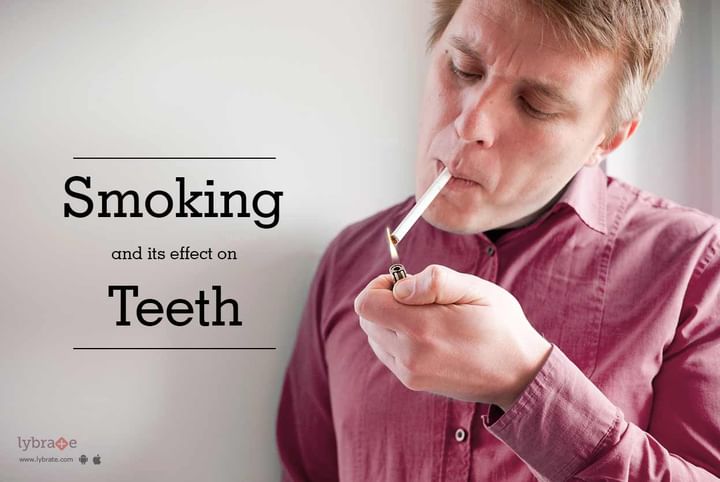Smoking and Its Effect on Teeth
Smoking is a phenomenon where the smoke emanated from a burning substance, usually tobacco, is inhaled. Smoking is a major cause for multiple diseases such as lung cancer, mouth cancer, blood pressure disorders etc.
Smoking tends to limit the capabilities of the immune system and this makes it easier for various diseases to affect the body. Smoking can lead to problems in the teeth where the gum tissues that attach the bone with the teeth are affected. This may cause the blood flow to the gums to be impaired and affect the functioning of the teeth.
The changes that the teeth undergo due to smoking are -
1. It may increase teeth sensitivity.
2. Smoking causes the teeth to be pulled away from the gums.
3. It can result in swollen and bleeding gums.
4. It may cause pain while chewing food.
5. Bone loss around the jawline occurs in smokers.
6. It can result in stained teeth and bad breath.
Disorders related to the teeth caused by smoking
There are various disorders of the teeth which are directly linked to smoking, they are -
- Mouth cancer - in this condition tumors are formed in the mouth
- It can cause plaque to accumulate in the teeth
- It may cause gum disease that can result in tooth loss
- It may interfere with healing period of any dental treatment
- It reduces the success rates of teeth implants
- Sweeteners present in the tobacco can also cause tooth decay
The effects of smoking on the tooth can be minimized by avoiding smoking altogether. Apart from that, following proper dental hygiene such regular brushing and flossing of the teeth will keep the teeth healthy. Avoiding smoking also reduces chances of lesion leukoplakia (white patches near teeth and gums).
'Consult'.
Related Tip: 7 Dangerous Changes that Smoking Causes to Your SKIN



+1.svg)
